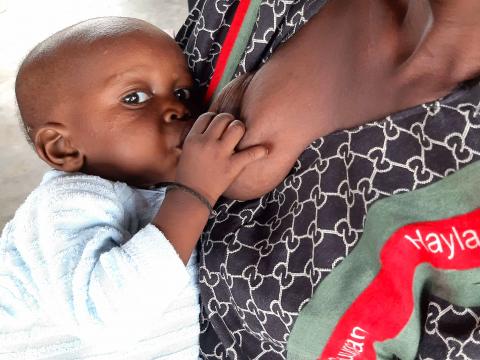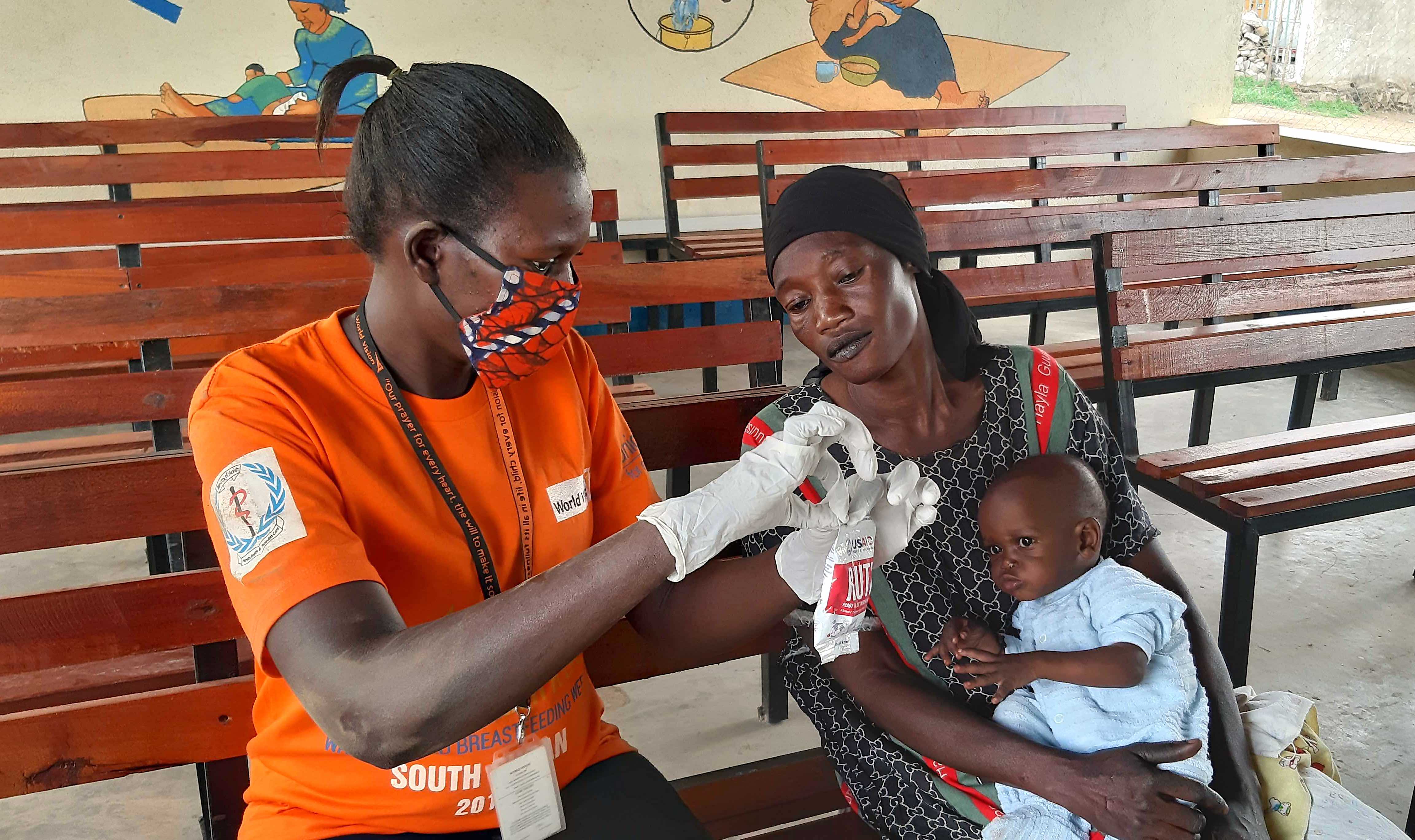On Breastfeeding Week, South Sudanese mother shares COVID-19 turned her dream into a nightmare

Thirty-three-year old Viola Luka’s 8-months old daughter Dina was on a monthly visit to one of the nutrition centers in South Sudan’s capital Juba that World Vision supports along with 200,136 mothers and caregivers. Her face was engulfed with worry.
The mother of six shared that she once earned income running a business breaking stones being used in construction work. It was her only source of income. Though backbreaking, Viola despairs losing the job when it stopped due to restrictions imposed as part of COVID-19 prevention measures.
“When the work was halted, it also led to a lack of food in the family table. This affected my supply of breastmilk for the baby. Every day it was hard to wake up seeing her grow weak with malnutrition. When will this COVID-19 end?”, she says. Viola’s situation is being experienced by many mothers who go to the center.
Related Story: Cooking sessions to combat malnutrition in communities

The UN report for 2020 has projected that more than 290,000 children will suffer from severe acute malnutrition, at least one million with moderately acute malnutrition and nearly 470,000 pregnant and lactating women with acute malnutrition. This projection was made long before the coronavirus pandemic hit the country.
“I did my best to provide for my children through my hard-earned income from the business. This pandemic turned my dream into a nightmare and I fear it can kill my family”, she adds. Nutrition Manager Rahab Kimani understood Viola’s sentiment. She has seen it every day.
Breastfeeding is the foundation of infant and young child survival, nutrition and development and maternal health. It is important to continue promoting breastfeeding during this COVID-19 pandemic.
In South Sudan’s capital Juba, World Vision’s nutrition program that campaigns for exclusive breastfeeding to combat malnutrition support 87,294 people, over 14,000 of these are children suffering from severe and acute malnutrition.
With a lack of proper nutrition, Kimani says, “More than 3,500 pregnant and lactating mothers and more than 70,000 receive regular counseling about maternal, infant and young children nutrition practices. Due to the lockdown, these mothers are finding it hard to join us in the centers and avail of the services they crucially need.”
Related Story: Mothers worry putting their children at risk during COVID-19

While mothers are up against many challenges in this pandemic, Kimani urges them with support from families never to stop breastfeeding. “The practice is the foundation of infant and young child survival, nutrition and development, and maternal health. It is important to continue promoting breastfeeding during this COVID-19 pandemic”, she appeals.
Will mothers put their children at risk of coronavirus? Kimani clarifies, “Breastfeeding actually protects infants against illnesses and diseases. Mothers with symptoms of COVID-19 can continue breastfeeding but follow respiratory and hand hygiene practices.”
She adds, “Infant or young child ageing 0-24 months with symptoms of COVID-19 should continue to be breastfed while preventive measures are carefully observed by the breastfeeding mother through proper washing of hands with soap and water or use sanitizer before and after contact with child.”
“All the health facilities in the country that provides maternity services should not promote breastfeeding substitutes like infant’s formula even during health outbreaks like COVID-19. The mother’s milk is still the best defense of a baby against diseases”, she strongly reminds in conclusion.
Related Story: Mobilizing community health workers to respond to coronavirus pandemic

Watch Video: Cooking nutritious food for South Sudan's children
Story by Cecil Laguardia, Communications Manager I. Scovia Faida Charles Duku, Communications Coordinator